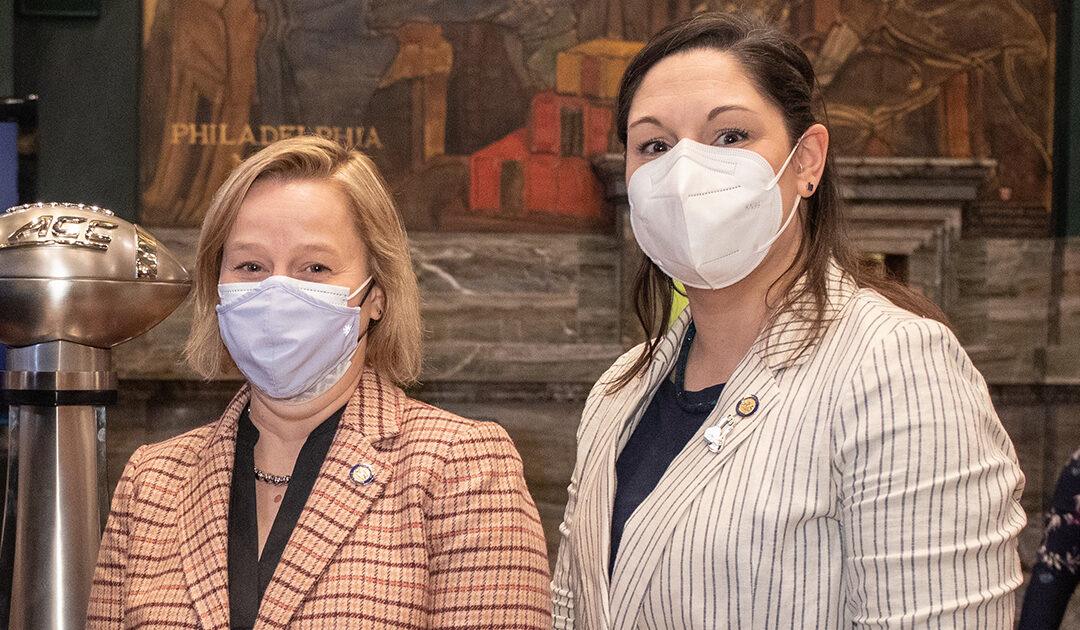Op-ed by Senators Amanda Cappelletti and Maria Collett
Recently, we watched in dismay as Sen. Joe Manchin pulled his support for President Joe Biden’s Build Back Better plan, a historic and popular bill that would, among other things, lower child-care costs for working families and increase wages for child-care workers. These policies could dramatically improve the lives of millions of Americans, particularly women.
The pandemic has had a staggeringly disproportional effect on women. Since the pandemic began, nearly two million women have stopped working; more than 300,000 left in September alone. Black women have particularly high rates of unemployment.
We have repeatedly supported state efforts to address this female exodus, such as Gov. Tom Wolf’s American Rescue Plan Act (ARP) grants for child-care providers and bills to upgrade our child-care facilities and curriculum and train new staff, establish paid family leave, and improve wage equity. Now, with Washington at a standstill, we must reiterate and amplify our call for action at the state level.
It’s past time for the Republican majority in Harrisburg to release some of the more than $5 billion federal ARP dollars they’ve held hostage and address the litany of factors that are forcing women out of the workforce and keeping them from returning. When we support women, we help families thrive and we set our economy up for success.
It makes intuitive sense that helping women helps families and the economy. But we don’t need to rely on intuition to support our argument: According to some estimates, gender gaps in the workplace are costing economies 15% of their GDP, and bringing more women into the workforce could add trillions to the U.S. GDP within a decade.
When we speak to women who have left the job force, it is clear their decisions have not been driven by laziness or inflated unemployment checks. Rather, these workers often felt forced to quit due to many factors, including an absence of affordable child care, the expectation they will manage the bulk of caregiving responsibilities, and a labor market that undervalues care work.
“Care work” includes paid or unpaid caregiving, like caring for children, nursing someone who is ill, or cooking and cleaning. Women represent nearly 70% of waitstaff, nearly 80% of health-care workers with direct patient contact, and 93% of child-care workers. And while the pandemic has exacerbated them, the issues surrounding working women and care work are not new.
We’ve helped women return to the workforce before: During World War II, the government began subsidizing child care to help recruit women to work wartime jobs. And presently, members of the Army, Air Force, Navy, and Marine Corps are offered assistance for child care. Why wouldn’t we make this model for work and care universal?
As legislators, we need to put forth policy that addresses gaps that have existed long before the pandemic. We can start by investing in women and programs that will support a sustainable recovery of our economy, such as President Biden’s Build Back Better agenda. In the meantime, there’s plenty of work to be done on the state level. While neighboring states are using their federal ARP allotments to invest in the urgent needs of their residents, Pennsylvania Republicans have set aside billions of our ARP dollars for a “rainy day.” Look around — it’s pouring.
State Senate Democrats introduced a plan earlier this year that proposed using $2.47 billion of Pennsylvania’s nearly $7 billion in ARP funds for child care, business assistance, education, job training, and workforce development. This would include a $300 million injection into our crumbling child-care infrastructure.
We have the resources we need to make transformative changes for Pennsylvania’s women and families, but we need our colleagues in the majority to come to the table.
When we support women, we activate a chain reaction of benefits that touches every part of our commonwealth and country. It’s not only the right thing to do, it’s the smart and necessary thing to do. Women need a living wage. Women need quality, affordable child care. Women need our support now.
We don’t have time to waste.

